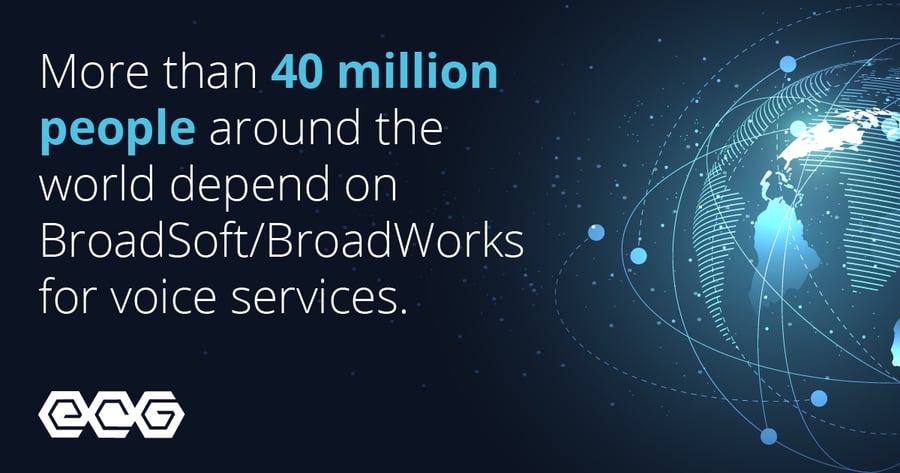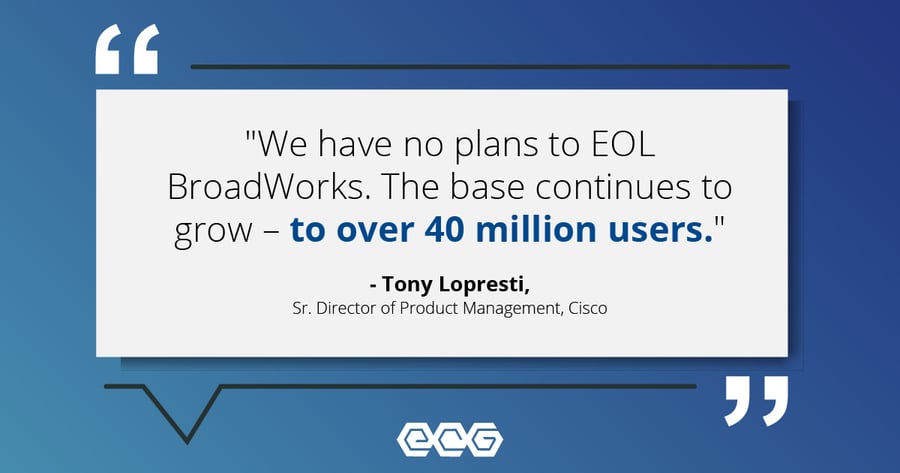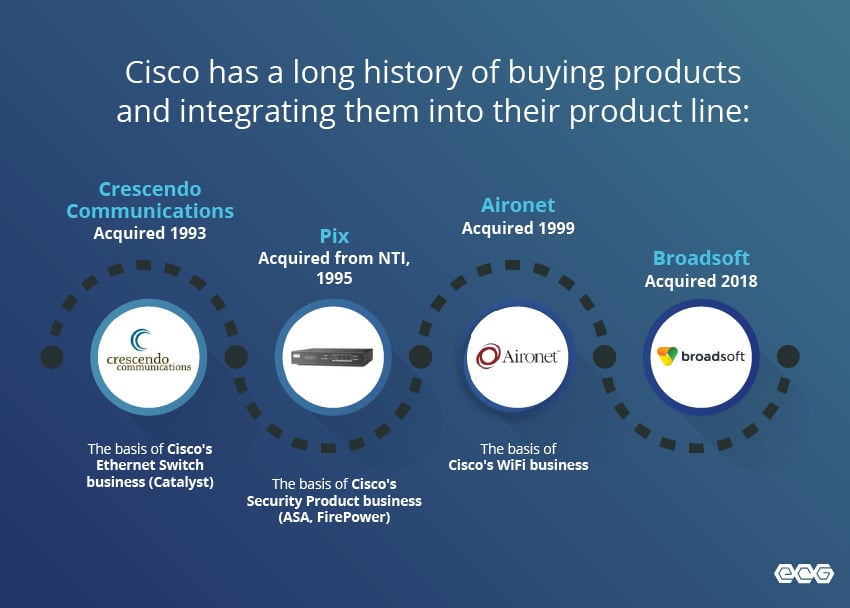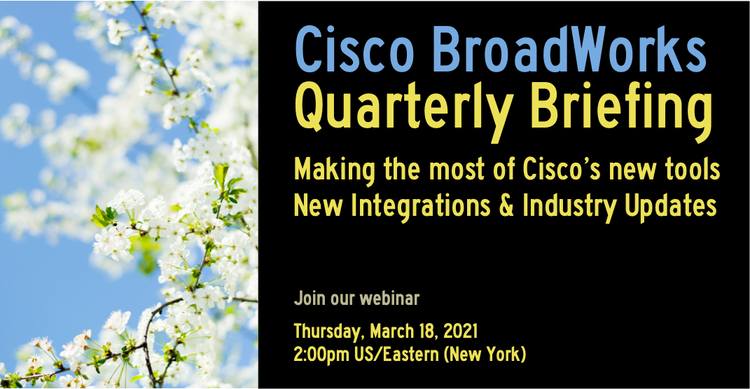What is BroadSoft?
BroadSoft was a leading VoIP and unified communications (UCaaS) provider that offered cloud-based voice, video, messaging, and collaboration solutions for businesses. Founded in 1998, it became widely used by telecom carriers and service providers to deliver enterprise-grade voice services on a global scale. In 2018, Cisco acquired BroadSoft, integrating it into its Cisco BroadWorks product line.
More than 40 million people around the world depend on BroadSoft/BroadWorks for voice services.1 As one of the leading business communication platforms used by service providers, BroadSoft offers its customers unmatched performance, security, and scale. However, there’s been a lot of talk about Cisco declaring end of life for BroadSoft, leaving many to worry about the future of their voice networks.

What is BroadSoft VoIP?
BroadSoft’s VoIP technology powers many of the world's largest service providers. It enables cloud-based business phone systems, carrier-grade VoIP infrastructure, and scalable unified communications solutions. Major providers like Vonage, AT&T, Verizon, Comcast, BT, and Spectrum Enterprise rely on BroadSoft/BroadWorks to deliver secure and flexible voice services to businesses of all sizes.
If you’re wondering whether BroadSoft is still a usable voice platform, you're not alone. Below, we address potential fears to help you gain a better understanding of what’s going on with BroadSoft – and why this platform is still a top choice for service providers for continued growth.
Is BroadSoft End of Life? Here’s the Truth
Cisco hasn’t released much in terms of communication about its BroadSoft portfolio since acquiring the company in 2018, which has led many service providers to wonder what’s going on with the platform.
The primary focus of Cisco’s marketing has been Webex, its cloud-based web and video conferencing service. The expansion of the Webex Calling platform (as a competitor to RingCentral, 8x8, Microsoft Teams, and Zoom Phone) further feeds the uncertainty. Coupled with the lack of information available on BroadWorks, this has led many to believe BroadSoft/BroadWorks products have reached end of life.
While there’s a lot of chatter surrounding this fear, the truth is that BroadSoft is still a very stable communication platform with ongoing and robust support from Cisco. Massive voice service providers such as Vonage, Spectrum Enterprise, Cox Communications, Comcast, Verizon, BT, and AT&T (via ClearSpan) are expanding services on BroadWorks all the time, and large-scale enterprises continue to receive excellent support for these systems. These operators provide unified communications packages that rely on both Webex and BroadWorks Calling. The marketing focus may be on the meetings and messaging, but the heart of voice communication remains BroadWorks.
Cisco leaders wish to reassure Service Providers & Operators. As recently as March 2023, DP Venkatesh, VP/GM - Digital, SMB, and Global Strategic Partners at Cisco, pointed out how BroadWorks is a profitable part of the business and "not going anywhere." Tony Lopresti, a Senior Director of Product Management at Cisco, said, "We have no plans to EOL BroadWorks. The base continues to grow – to over 40 million users."

Cisco's BroadWorks customers are making long-term plans around the platform. It should offer peace of mind that Cisco's support commitments continue to enable operators to make long-range product plans that depend on BroadWorks – without fear that an EOL will be announced.
Cisco Integrations: A History of Successful Acquisitions
We've been observers of Cisco's business since the early 1990s, and they've demonstrated a strong history of integrating other products into the core Cisco product line. While it’s true that Cisco has thrown much of its marketing weight behind selling Webex, all signs point to your BroadSoft system staying in good health for the foreseeable future.
Cisco has a long history of buying products and integrating them into their product line:
- Aironet, Acquired 1999: The basis of Cisco's WiFi business
- Pix, Acquired from NTI, 1995: The basis of Cisco's Security Product business (ASA, FirePower)
- Crescendo Communications, Acquired 1993: The basis of Cisco's Ethernet Switch business (Catalyst)

Will Cisco BroadSoft Continue Receiving Support?
Currently, Cisco continues to provide support for BroadSoft, but the level of investment in new features and long-term enhancements appears to be slowing. Cisco is heavily promoting Webex as its primary cloud-based communications platform, suggesting that BroadSoft may receive fewer updates over time.
While security patches and maintenance updates are still provided, the shift in focus means fewer innovations and integrations compared to Webex and other newer platforms. Businesses should assess whether the support roadmap aligns with their future needs and plan accordingly.
5 Risks of Staying on Cisco BroadWorks
Remaining on BroadSoft carries several potential risks:
Limited Future Updates
With Cisco prioritizing Webex, BroadSoft may not receive significant feature updates, meaning additional platform integrations will be necessary to add innovative new services.
Reduced Innovation
New communication technologies may be released for other platforms before easy integration with BroadWorks is possible.
Innovation Priorities
Though it's the leading Cloud Communication Voice platform, extensive development is going into integration with Teams, Zoom, and other proprietary platforms.
Increased Maintenance Costs
Compared to a reseller-only architecture, running a BroadWorks platform caries ongoing operational costs
Businesses using BroadWorks should weigh these risks and prepare for potential changes in Cisco’s strategy.
Exploring BroadSoft Alternatives: Smart Strategies for Service Providers
Navigating the BroadSoft ecosystem without positive communications from Cisco can be confusing. If you’re not sure how the future of BroadSoft will affect your voice network, ECG can help.
BroadWorks isn't the only option. There are smart reasons to integrate multiple platforms, and ECG is happy to provide support and growth on Metaswitch/Max UC, NetSapiens, and Kamailio/OpenSIPS/FreeSwitch. It’s wise for service providers to operate multiple platforms through an intentional strategy of diversification – and the M&A activity that emerges.
Should You Migrate Away from Cisco BroadSoft?
The decision to migrate depends on your business needs, existing infrastructure, and risk tolerance. Here are some key considerations:- If you cannot negotiate terms with Cisco, migrating to another platform may be an option you'll need to consider
- If you require new features to be built into the core calling platform, migrating to a platform where the new features are baked-in may ben option
- If your current BroadSoft deployment meets all your needs, you may not need to migrate immediately, but you should still monitor Cisco’s roadmap.
- If you want to reduce reliance on a single vendor, exploring additional core calling platforms may give vendor diversity
Ultimately, planning ahead will help ensure a smooth transition, whether you stay on BroadSoft for now or move to a more future-proof platform.
Get Expert Guidance from ECG' Network Consultants
We’ve been around for a long time, with decades of proven experience building and supporting voice networks for service providers, government agencies, and enterprises under our belt. Thanks to our long-standing industry relationships, we have access to insider info on anything that might impact our customers’ voice and data networks. Our voice engineering experts would be happy to help you gain clarity about your platform, and guide you through how these changes apply to your business.
Sources:


